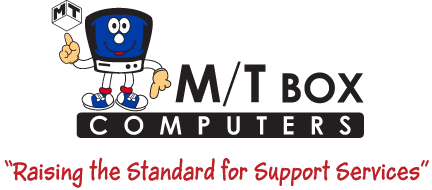Windows XP Support Ending
Microsoft will end support for Microsoft XP on April 8, 2014
As of April 2014, the Microsoft XP operating system will no longer be supported by Microsoft. ALL support will be going away as of that date. This includes;
- Security and System Updates
- Driver updates via Windows Update
- Service Packs and Improvements
- Some 3rd Party Hardware and Application support
Any hardware that is not compatible with newer Operating Systems will need to be upgraded/replaced prior to updating. We encourage you to plan for these changes now to eliminate any issues in the future. Don’t wait until the last minute and risk losing valuable time, information or data from your system when this change takes effect. After April 2014, your XP machine will likely move to the “unprotected” category and nearly quadruple your chance of infection. Please call us today to discuss your upgrade plans to ensure you will be ready. Don’t get left behind and vulnerable! The following is information directly from Microsoft on these changes: http://www.microsoft.com/en-us/windows/endofsupport.aspx What does it mean if my version of Windows is no longer supported? An unsupported version of Windows will no longer receive software updates from Windows Update. These include security updates that can help protect your PC from harmful viruses, spyware, and other malicious software, which can steal your personal information. Windows Update also installs the latest software updates to improve the reliability of Windows—new drivers for your hardware and more. Support end dates
| Desktop operating systems | Latest service pack | End of mainstream support | End of extended support | |
|
Windows XP |
April 14, 2009 |
April 8, 2014 |
||
|
Windows Vista |
April 10, 2012 |
April 11, 2017 |
||
|
Windows 7 * |
January 13, 2015 |
January 14, 2020 |
||
|
Windows 8 |
Not yet available |
January 9, 2018 |
January 10, 2023 |
* Support for Windows 7 RTM without service packs ended on April 9, 2013. Be sure to install Windows 7 Service Pack 1 today to continue to receive support and updates. To make sure you’re running the latest service pack, see the Service Pack Center. For more information, see Support is ending for Windows XP. Windows will continue to run Even if you have an unsupported version of Windows XP or Windows Vista without any service packs, Windows will continue to start and run as usual, but will likely be vulnerable to virus and security exploits.
For full details about the support policy, see the Microsoft Support Lifecycle Policy FAQ.
WHY?
Why is Microsoft ending support for Windows XP and Office 2003? In 2002 Microsoft introduced its Support Lifecycle policy based on customer feedback to have more transparency and predictability of support for Microsoft products. As per this policy, Microsoft Business and Developer products, including Windows and Office products, receive a minimum of 10 years of support (5 years Mainstream Support and 5 years Extended Support), at the supported service pack level. Thus, Windows XP SP3 and Office 2003 will go out of support on April 8, 2014. If your organization has not started the migration to a modern desktop, you are late. Based on historical customer deployment data, the average enterprise deployment can take 18 to 32 months from business case through full deployment. To ensure you remain on supported versions of Windows and Office, you should begin your planning and application testing immediately to ensure you deploy before end of support.
WHAT?
What does end of support mean to customers? It means you should take action. After April 8, 2014, there will be no new security updates, non-security hotfixes, free or paid assisted support options or online technical content updates. Running Windows XP SP3 and Office 2003 in your environment after their end of support date may expose your company to potential risks, such as: Security & Compliance Risks: Unsupported and unpatched environments are vulnerable to security risks. This may result in an officially recognized control failure by an internal or external audit body, leading to suspension of certifications, and/or public notification of the organization’s inability to maintain its systems and customer information. Lack of Independent Software Vendor (ISV) & Hardware Manufacturers support: A recent industry report from Gartner Research suggests “many independent software vendors (ISVs) are unlikely to support new versions of applications on Windows XP in 2011; in 2012, it will become common.” And it may stifle access to hardware innovation: Gartner Research further notes that in 2012, most PC hardware manufacturers will stop supporting Windows XP on the majority of their new PC models. Get current with Windows and Office. This option has upside well beyond keeping you supported. It offers more flexibility to empower employees to be more productive, while increasing operational efficiency through improved PC security and management. It also enables your organization to take advantage of latest technology trends such as virtualization and the cloud.

